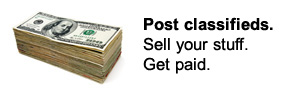FBI Agent Explores Issue of Money Laundering

After FBI Special Agent Debra LaPrevotte speaks at the Manassas campus of NOVA on Jan. 20, members of the audience ask the agent questions about her work.
A standing-room only crowd at the Manassas campus of Northern Virginia Community College got schooled about the ins and outs of international money laundering Jan. 20. It wasn’t a class for credit but a lecture given by FBI Special Agent Debra LaPrevotte and organized by the Lifelong Learning Institute.
Money laundering is defined by YourDictionary.com as: “Making money that is generated through criminal activities appear as if it was earned through legitimate business activities.”
The blog of the Supreme Court of the United States discussed the meaning as being a method to disguise illegally-obtained money by making it appear legitimate — in essence, to make “dirty money” look “clean.”
LaPrevotte, an FBI agent for 14 years, spent over an hour telling the Colgan Theater crowd about corrupt foreign leaders and the various methods they have used to smuggle and hide huge sums of money. One of the most common methods used, according to the lecture, involves a country’s leader telling corporations that they cannot do business in their country unless a relative of the leader (usually the spouse or grown child) receives a portion of the profits – sometimes a staggering 30 percent. Billions can be made this way.
Kickbacks and the threat of economic harm, which LaPrevotte said amounts to extortion, are common money laundering schemes. Casinos are also used to launder money, making it appear to be gambling winnings.
Some people will buy the bank in order to make it easier to hide and move illegally-gained funds. That’s what former Ukrainian Prime Minister Pavel Lazarenko did, and he received a nine-year prison term for it.
LaPrevotte listed the top money laundering leader as Mohammed Suharto, former president of Indonesia, who the FBI says laundered $15 billion to $35 billion. Suharto died in 2008.
LaPrevotte only had a short time to touch on many aspects of money laundering, so she gave brief examples of different cases. One such case involved El Salvadorian drug runners she had tailed. The FBI followed the suspects to a store and noticed that they were buying lots of lemonade and tea. When they tried to leave the country, a search of their luggage at Dulles International Airport revealed that $40,000 cash was hidden in lemonade and tea bins. According to the agent, the suspects were hoping that the smell of the lemonade and tea would prevent drug-sniffing dogs from smelling the cocaine that may have gotten on the cash.
“We’ll get you,” said LaPrevotte about anyone who might consider using the U.S. to smuggle or hide money.
By: KJ Mushung
Stay updated by liking us on Facebook or following us on Twitter.












Leave your response!